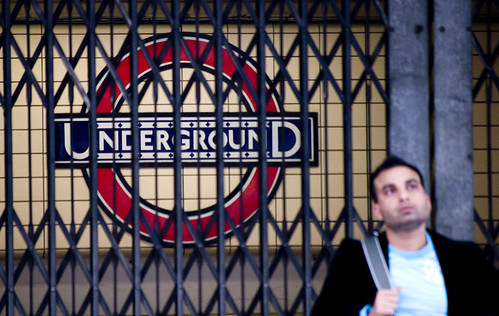
Bonus/ransom (depending on your perspective) paid to Tube employees to avoid a similar 2008 strike (pictured above) during 2012 Olympics: £1800. Image by Flickr user C. G. P. Grey.
With an impending GO Transit strike in the near horizon, let’s take a quick look back at some of the more memorable public transit strikes in recent times:
Last transit walkout in nation’s capital (Ottawa): 2009
Days lasted: 51
Payroll savings: $3 million/day
Economic losses: $4 million/day
Property damage losses due to seriously irate commuters in 2010 Bogota transit strike: $400,000
Economic losses due to 2007 London Tube strike: $100 million/day
Economic losses due to 2005 New York transit strike: $400 million/day
Penalties: 2 days pay per day spent picketing
Cost of fine imposed on union: $2.5 million
Days in jail for union leader Roger Toussaint: 10
Legality of transit strikes in New York: Illegal – under Taylor’s Law (1967)
Legality of transit strikes in London: Legal – under democratic right to industrial action
Legality of transit strikes (as of March 2011): Illegal – under “essential services” rules
Definition of “essential services” job: Needed to protect human health (doctors, police, firefighters)
TTC bus drivers: Essential service
Ambulance drivers: Non-essential service
Effects of 2008 Toronto transit strike: $50 million loss in productivity per day
Effects of 2006 Los Angeles transit strike: 20% decrease in traffic speeds, 200% increase in rush hour traffic time
Effects of 1976 Allegheny County (Pittsburgh) transit strike: Not much (relatively mild)
